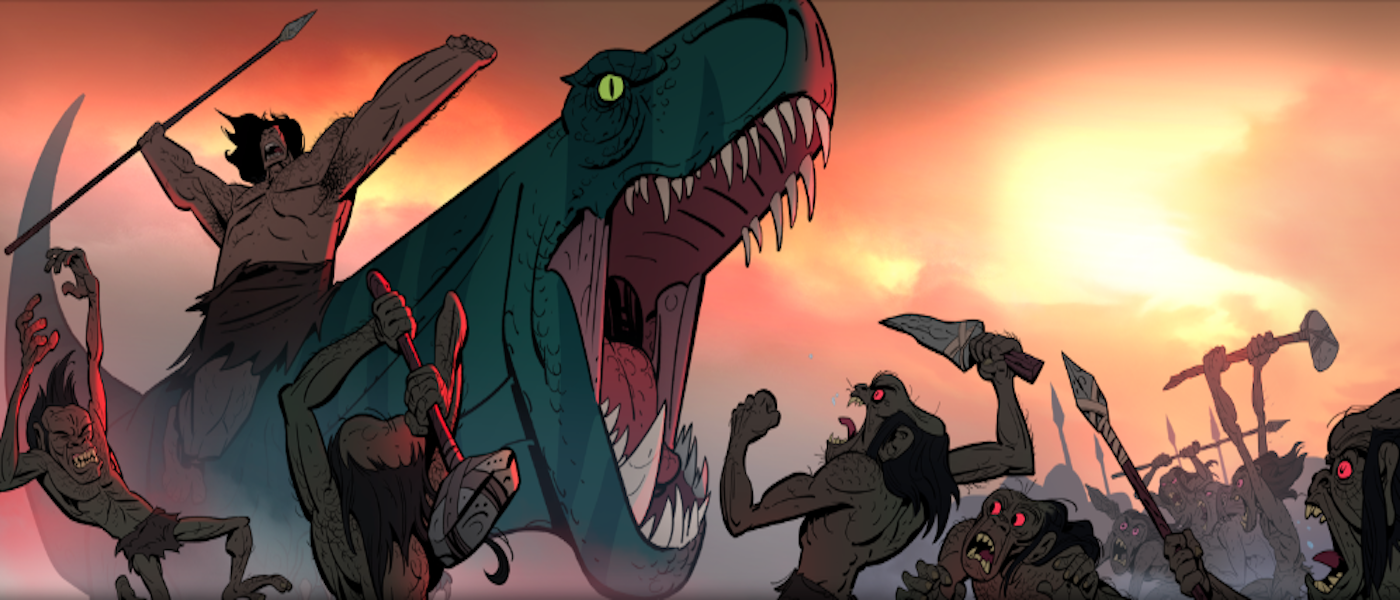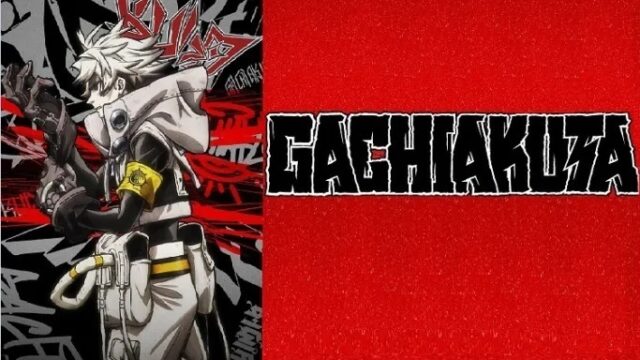Season Review: Primal Season Two
Overview:
Spear and Fang conquer new heights, both physically and emotionally, as their quest to retrieve the missing Mira escalates to alarming proportions. This warrior team gets pushed increasingly out of their comfort zones as they travel across land, sea, and sky. New friends and foes are encountered, which lead to enlightening revelations that dig deep into not just the nature of Spear and Fang, but the nature of mankind and its animal instinct.
Our Take:
Genndy Tartakvosky has been one of the most exciting storytellers in animation. His past works like Samurai Jack, Sym-Bionic Titan, and The Clone Wars are all stunning accomplishments, but it truly feels as if Primal is Tartakovsky’s purest piece of work and his greatest achievement. The first season of Primal was such a success that it seemed as if there could only be diminishing returns on a second year. Thankfully, Primal is the rare example of an excellent show that only gets better, but also ups its game in such a significant manner that its first year now somehow seems quaint. Yes, a show with dismemberment, zombie dinosaurs, and the equivalent of prehistoric kaiju matches feels quaint. Welcome to Primal.
The most rewarding element of Primal’s second season is how the show fearlessly expands its boundaries, but literally and thematically, with where its voyage goes. There are some amazing episodes that are largely set at sea, but so many installments occur in settings that would have felt impossible back during season one. Primal season two shines a new light on different cultures, who become both enemies and allies throughout Fang and Spear’s journey. This dynamic duo also gains some vital company along their conquests this season in the form of Mira and Kamau.
On that note, the character development that Mira, Kamau, and even Eldar experience across the span of only a few episodes is on par with the Spear and Fang’s growth. All of these characters reflect shades of each other in some way, which also speaks to the series’ commentary on the shared, cyclical nature of violence. These supporting characters are strong enough that they could just as easily sustain their own seasons of Primal. The episodes that do extensively focus on these new players are such a treat that Spear and Fang are never missed. There are also dino babies this year, which Primal exhibits tremendous restraint over since they don’t dominate every single second of the series once they appear.
There are also some ambitious storytelling risks taken this season beyond the bigger cast and world view. “The Primal Theory” is arguably the best episode that the show has ever done, but also a completely different beast from the rest of Primal. It’s full of eloquent dialogue and at times feels more like an Agatha Christie locked room mystery than it does a brutal prehistoric clash of power. More episodes are willing to follow curious whims and unexpected developments that keep the audience on their toes much more than how episodes play out in the first season. Additionally, season two indulges in a three-part extravaganza, “The Colosseaus,” which is easily the series’ biggest story to date. It’s an epic accomplishment that could stand on its own and confidently air in theaters, not unlike the approach that was taken for Samurai Jack’s introductory trilogy of episodes.
There’s a lot to appreciate in a series like Primal, but it’s hard to not get caught up in the inventive action sequences that punctuate each episode. This season engages in newfound levels of brutality that always include creative surroundings and choreography. Moments like the War Queen’s death or the limbs lost by Spear’s father are incredibly blunt. Everything gets cranked up this season. This applies to Primal’s battles, but it’s also true for the series’ softer side. These ten episodes effortlessly balance action, emotion, and patient introspective sequences of awe and reflection. At this point it’s impossible to just write Primal off as an aggressive action series. This season even dips its toe in Norse mythology when it comes to its themes and structure. There are times when the series functions as a scintillating history or anthropology lesson that really feel special. This season strives to bring forward the humanity behind war and greed just as much as it relishes in those displays.
Genndy Tartakovsky has openly spoken about his shifting perspective and plans for Primal if it were to go forward. He’s accomplished remarkable things with Fang, Spear, and their prehistoric journey, but he’s emphasized how Primal, as a concept, works best when it’s explored through generations across history. The two seasons of Primal elegantly highlight the cyclical generations of violence within a microcosm, but Tartakovsky pines to tell equally brutal stories that span the entire globe across time. These pangs are palpable during season two as Fang and Spear encounter copious cultures and get to experience different ways of life that was much less of a priority back in season one. The season’s standout anomaly, “The Primal Theory,” is an ode to this concept and very much feels like a backdoor pilot for the broader types of stories that Tartakovsky hopes to eventually be able to cover in this series.
These two seasons succeed as a standalone package that has a definitive finish and a potential third season has a lot of options to consider. Primal could comfortably hop to a totally different time period and follow wholly new characters. However, the season also tees up a fresh perspective for more stories that follows Spear and Mira’s warrior daughter as she sets out on new adventures with Fang’s own offspring. Any direction that Tartakovsky decides to take with Primal will no doubt be the right choice that challenges both the series and its audience. What’s most important is that a third season happens in the first place. If there’s any piece of programming on Adult Swim that deserves to survive this Warner Bros. Discovery shakeups it’s Primal. It’s already accomplished in two seasons what most series hope to achieve in 100 episodes.
























"There are also other characters that come and go (also owned by the Warner Bros. Discovery conglomerate media company)."
Huh. Is that just referring to other characters from the show itself, or is this implying that the new season is going to have cameos from other WBD IPs